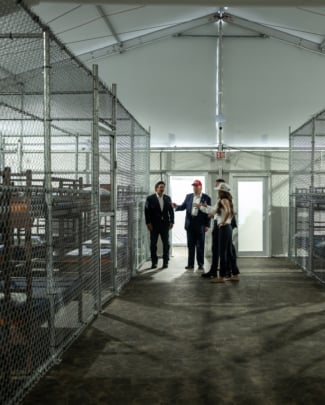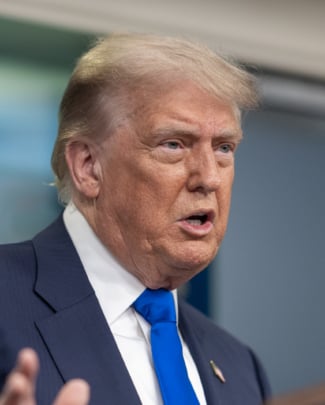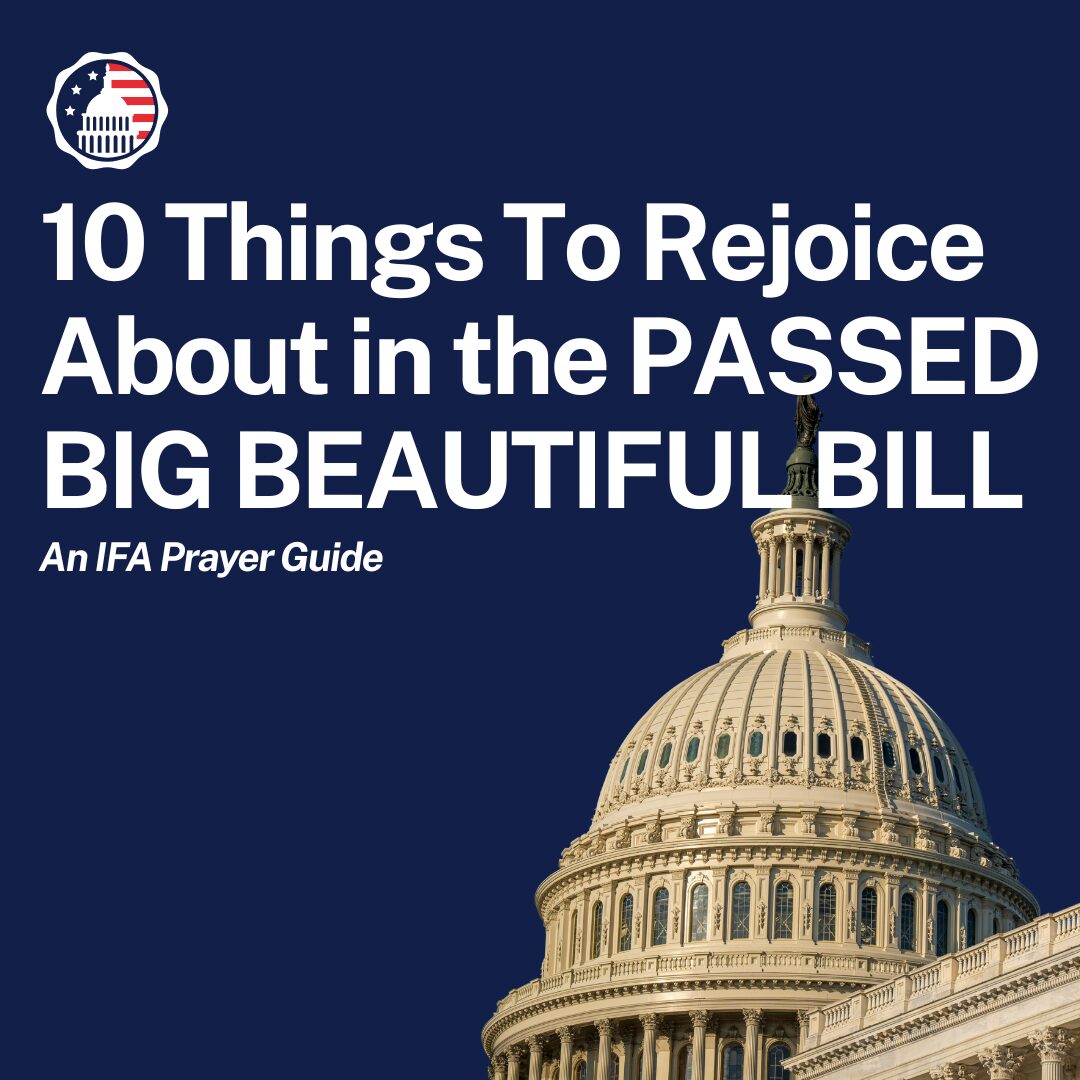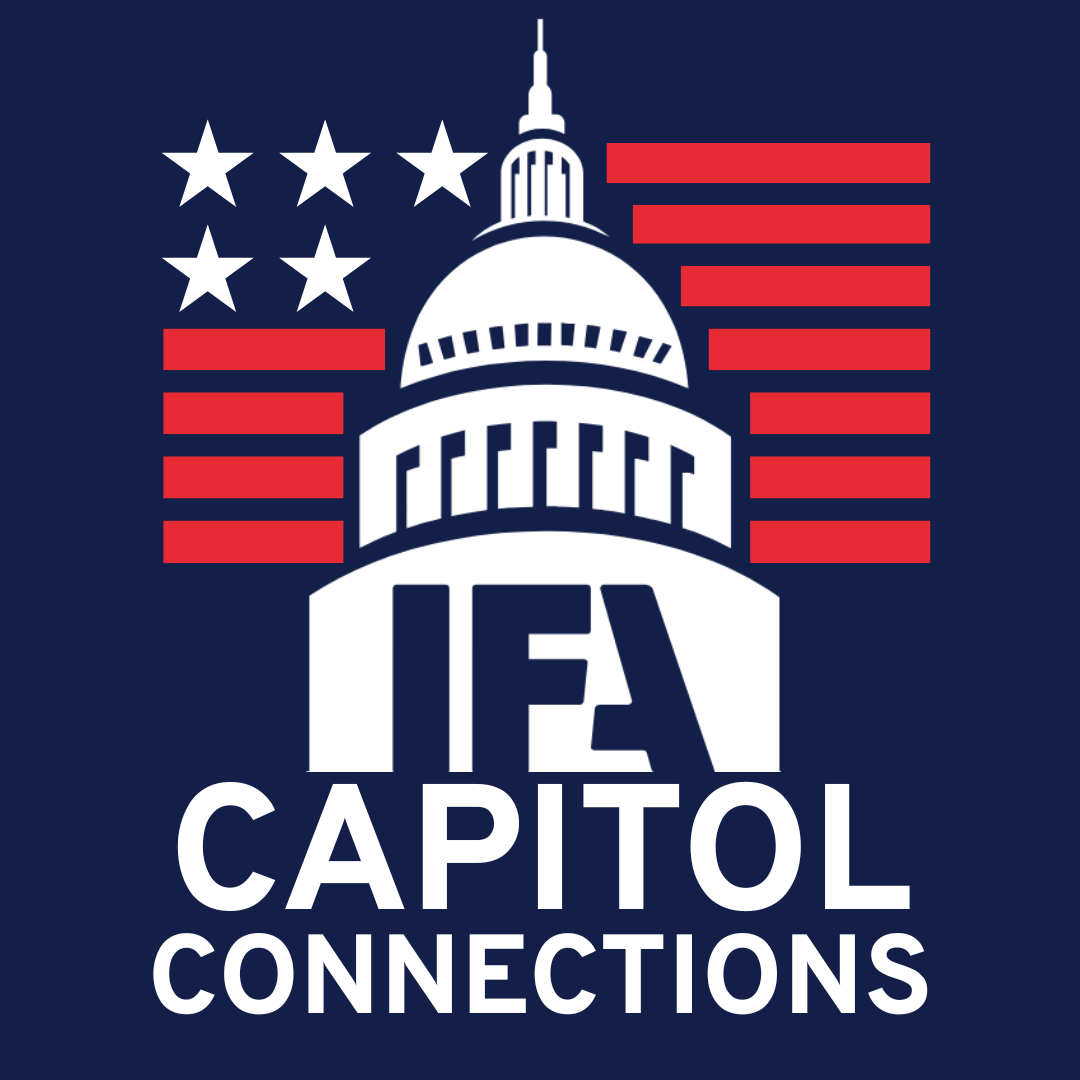FORMER ISIS BRIDE NOW FIGHTS RADICALISM OF EXTREMIST MUSLIMS
INTERESTING TREND: ORTHODOX JEWS BECOMING REPUBLICANS
UNDERCOVER VIDEO: CORONAVIRUS CONDITIONS IN CHINA
THIS CANDIDATE KNOWS THAT AMERICA’S GREATNESS RESTS ON FAITH, FAMILY,...
BILL REVOKING MEDICAL LICENSES OF ABORTION DOCTORS PASSES OKLAHOMA HOUSE
FORMER ISIS BRIDE NOW FIGHTS RADICALISM OF EXTREMIST MUSLIMS
For Tania Joya, who was raised Muslim in London, it was a long journey to life in the United States.
“I wanted to be in America, but my husband … thought that was bad for my religion and he thought that I would teach my children the wrong values,” recalls Joya. “So he took us to Syria.”
After her husband became an ISIS fighter, Joya worked with U.S. officials, sharing information from her husband. Now she’s working against violent extremism. . .
Virginia Allen: I’m joined by Tania Joya, a former ISIS bride who fled Syria with her children and now works with Congress, the State Department, and [the Department of] Homeland Security to fight for the deradicalization of extremist Muslims. Tania, thank you so much for joining me.
Tania Joya: Thank you for having me here.
Allen: Tania, your story is an incredible one and we have so much to unpack. So I want to start at the beginning. You were raised in London. Were you raised in a Muslim home?
Joya: Yes, I came from a Muslim cultural family. They weren’t radical or extremist in that sense and I was introduced to radical Islam or jihad I would say through my cousin who was radicalized at Oxford University and she taught me about the caliphate. This is in 2001.
Allen: OK.
Joya: So actually 2000.
Allen: OK.
Joya: Right before Sept. 11.
Allen: And then what happened after Sept. 11, did that change your perspective?
Joya: It turned my life like completely upside down.
I was studying social studies at a level like a senior high school, so I never really was aware of Muslim politics. It was alien me, I didn’t know it existed. And when Sept. 11 happened I remember I came home from school, switched on the news, and saw it, and I was horrified.
I went to school the next day and I spoke to my classmate—she was a Pakistani girl—and I was like, “Wasn’t it dreadful what happened?” And she was like, “Was it so bad?” And I thought, “Well, she must not have understood my question.” So I kept rephrasing it and she was like, “OK, just come home after school and talk to my parents. They’ll help you understand.”
So this is like part of the pull, like that extremist. The recruiting process is like, “Come into my home. Come to a safe space where we can talk, where we won’t be listened to.”
And then I wasn’t hearing it directly from her because even she didn’t understand politics. I was hearing it from her parents who glorified Osama bin Laden as a war hero who had defeated the Soviet Union on the battlefield, and if it wasn’t for the Osama bin Laden and the mujahideen, America wouldn’t be the superpower, it’d be Russia.
So that was making me curious about my heritage and I was like, “Well, I’m a Muslim, [there’s] nothing I can do about it.”
And growing up in a working-class neighborhood in England, we had this split politically where the English natives were siding with the BNP—that’s the British National Parties and neo-Nazi party—and English Defence League and then, as a result of the growing movement of white nationalism in England to oppose that, the Muslim community [was] radicalizing with [its] Islamic political agenda.
That’s how a lot of youth in Europe and some in America we went down this dark path of, first it was like we had an identity crisis as teenagers. We didn’t know who we were but we weren’t allowed to be Western because that’s satanic, according to Islam. And then being Muslim, especially a Muslim woman, means giving up all your freedoms.
But when you think God is on your side and you’re young and you want a revolution, you want change and you also want a cure for all the problems in your life, well, who else is going to fix it better than God? So you’re under that misconception.
We are also told that Islam will solve all the problems, the world will have a beautiful utopia. Well, when you’re young and vulnerable and from a broken home, especially, you long for that.
That’s what draws in so many people into radical Islam as children. But also with neo-Nazis, we see the same pattern where I call it the “war on white males” that is happening right now and it’s phenomenal. And it’s marginalizing white male youth to lean toward neo-Nazism because that gives them a space where they can embrace their masculinity and feel some pride. So I completely empathize with it.
With the program I’m working with now, Preventing Violent Extremism Workshop, which was made by the Clarion Project, it’s our solution, it’s our way of trying to help the U.S. with this mental health crisis that we’re having right now.
We’re not going to take people’s guns away and say, “Hey, that’s going to solve the breakdown of family values.” It’s not, it’s instilling the values into children from a young age, from fourth grade up with a value system that is so grounded that when they come across arguments that will draw them into any sort of violent extremist political movement, they’re going to say, “Hang on, my value system is way better than this.”
It’s humane. It doesn’t involve killing people, because if they kill people for bad, it’s a bad idea. And it’s basically giving them the arguments, the counter-narratives to prejudice and hateful ideas.
Allen: Wow, wow. And you know, you’re so right that this is a situation and an issue that touches men, it touches women, it touches Americans, touches Europeans. Your first husband was an American. How did you all meet?
Joya: He still is an American.
Allen: Yeah.
Joya: He’s an American who, it started off as Sept. 11, he was a military brat. And in my eyes I thought he born with a silver spoon. He was born into the life that every non-American wishes they could [have]. They would love to exchange places with him.
He was a white American, upper-middle-class family with a military legacy. His dad was a colonel in the Air Force for 30 years. His grandfather fought in World War II, [he] was a general and then he turned out to be a commander in ISIS.
Allen: How did that happen? That seems like a really radical jump to have your father be in the American military and serve and then you decide to go and become an ISIS fighter.
Joya: Again, it goes back to him not having a good relationship with his dad to begin with and, again, we see this pattern with a lot of people who become neo-Nazis or violent extremists in particular. They don’t have the stability at home or something adverse happens in their life, which they might need psychological help for but they’re not getting it, and then they turn toward movements, political movements that give them meaning and purpose.
Plus, in a society where we live in, where we’re told it’s all about the material things in your life, they’re looking for spiritual enlightenment, but they’re not looking in the right direction.
Allen: Wow. Yeah. That’s something that’s so innate and all of us search for purpose. So when you met your husband, was he already radicalized?
Joya: Yes.
Allen: He was.
Joya: When he was 17 years old, [it] started off as a rebellion against his father just to annoy his father as much as possible, he became a Muslim. That was the worst thing you could do in his family because they were a Greek Orthodox family, they had this whole history of not liking the Ottomans. Rightfully so—the Ottomans enslaved a lot of Europeans—I could understand it.
But he couldn’t live up to his dad’s image. His dad was a quarterback at West Point who became a doctor and a colonel. His dad was 6-foot-4. He was very good looking, but John didn’t compare. John had bone frailties and he was in a wheelchair for six months, he became very depressed. He started doing drugs at 11 years old.
He was not on the same road as his father was, and so there was conflict between the two of them. So John’s feeling of rejection by his dad made him look for family elsewhere or respect elsewhere. The feminist movement also pushed him toward looking for a community that embraced him as a male. And Islam certainly does that.
Allen: That’s really interesting. I want to ask you more about that. So he actually found that kind of the modern-American, in-your-face feminism made him kind of pull back?
Joya: Want traditional values.
Allen: Interesting.
Joya: And seek patriarchy, a patriarchal family. Even myself, I longed for the same thing, being told, “Oh, being a stay-at-home mother … wanting to be a mother in the first place, oh, that’s so unambitious.” … Really, it’s like, it was internal for me, it was natural.
I was like, well, I’m quite maternal and I’d love to have children, but that wasn’t the right narrative. It’s like we’re all supposed to fall in line and say the same thing. But I wanted a big family. I wanted to have the family that I didn’t grow up in. And so [that is] one of the reasons why I allowed John to come into my life.
I met him online on a website. He was studying Arabic in Damascus and I was in London, around 19 years old. And I looked at him and I was like, “Wow, he’s got the life that I want to be.” So we got married after three days. I didn’t know him.
Allen: Wow. Three days.
Joya: But sadly, I had grew up in a culture with arranged marriages where girls didn’t know the men they were marrying and, boy, did they regret it. But they didn’t have a choice. I saw forced marriages. Even, again, the culture they came from was so anti-Western, even though we were living in the West, we weren’t allowed to integrate.
There wasn’t a place for us, so we ended up looking backward. Like, well, where do I come from? Well, my roots, but we only stopped to a certain point.
Allen: Yeah.
Joya: We thought, we felt we were helpless young kids who were seeking, I won’t say power, but it’s almost like that. With neo-Nazis, we find that they want to come off crazy. They want to come off scary. It’s a power trip. It’s the same with Islamicists. Same with ISIS. They want to come off scary and like crazy people to scare civil people.
Allen: Wow. Let’s fast-forward to 2013, you and your former husband and your children moved to Syria to join a jihadist insurgence. Can you just paint that picture for us? When you all arrived in Syria, what was the atmosphere like? The people that were around you, the camp that you all were in? What was the atmosphere?
Joya: Yeah. I just want to clarify that I didn’t want to be in Syria.
Allen: OK.
Joya: Because I had children. I wanted to be in America, but my husband … thought that was bad for my religion and he thought that I would teach my children the wrong values. And it’s the right values, but in his warped mind, it was the wrong values.
So he took us to Syria from Turkey, we’re supposed to be living in Turkey. And as soon as I got to Syria and as soon as I got a phone, I reported him. And I said, “I need to get out because if you don’t allow me, if I can’t leave Syria and come back to the U.S., you’re not going to have one American terrorist, you’re going to have five because he’s going to put my children on the front lines and I’m going to have to bury them.” And [that is] the last thing I want to do.
So part of my maternal instinct was to save my children. And to see them, not just survive, but I knew that the only place they’ll really thrive is here in the U.S. And so while I was there it was terrible, it was a war zone, everything was rubble. I would hear shooting outside.
When we first got there, John was interrogated, and the militants, they weren’t ISIS because ISIS came nine months after I left Syria. And yes, my husband had a lot to do with creating ISIS and he was a commander, but he lied to me about it for a long time, but I knew he was and then he finally admitted to it.
Well, while I was there, I was only in Syria for three weeks during the war and I would have left earlier but the roads were blocked. There were always blockades. There was very little food coming in where I was staying in Azaz, and I was five months pregnant. And then my kids and I all got infections because that’s pretty normal when you go to a Third World country, to get sick. So we all got sick.
But I didn’t want to be there, I didn’t want to be there for one day. But as a stay-at-home mother, who … I was raised, I was groomed to be a submissive wife, a doormat wife, I would say. And that’s pretty much how I was at first because … I was indoctrinated to believe that obedience to your husband is obedience to God.
But when I approached my mid-20s, I had my second child, but then I had had enough of that. I was like, “I’m not going to follow his foolish mistakes over and over again and believe this is a obedience to God.” It made me really upset because I knew he was dangerous for us. It’s just, as a Muslim woman, when I was a Muslim, I had no real divorce rights.
He wouldn’t give me a divorce. I didn’t have the right to dress the way I wanted, to think what I wanted to think. And that’s where my husband, my ex-husband John and I clashed.
It was when I came to America, and now you watched Fox Business. In 2009 I was homeschooling, I was doing laundry and I needed mental stimulation because my kids would drive me crazy, so I would watch the news and I saw Judge Andrew Napolitano discuss the Constitution and the Bill of Rights. And it opened my mind.
I was like, I was a complete FOMO. I was like, “I’m missing out.” You know, “I need this.” I believed I was a slave from the time I was born and I used to be told freedom is satanic, freedom is for the people who go to hell, they want freedom. We’re slaves, we’re slaves to God, though, it’s good to be a slave …
When you only hear the same voice over and over again, you just think that’s the way of life. You know? “Oh, well, that’s me. I don’t have a choice about it.” Like right now, off the topic a bit, but 1 in 4 Muslims in America don’t believe in the religion and that’s a great transition. Ten years ago the numbers weren’t that high. So we’re making progress.
American values, especially our generation and the younger generations we’re seeing, “Hang on, American values are humane values.” This is how humans prosper and do well and just what the Founding Fathers wanted for us. And even the Founding Fathers of America understood the threat of jihad and the idea of a caliphate because they understood the Ottoman Empire and they understood that women are property, children are property.
That’s all we were. And we had no rights. There was no room for us to grow. It was like our roles in society were assigned. You’d become baby-making machines and for some reason when I was 19 I thought, “Oh, that’s not so bad.” But then I got it and I realize it’s stressful. And plus, I was in my 20s I was like, “I want to do what other women do in their 20s, like have a job.”
Allen: So how did you find that freedom, both physically from Syria to America and then … in your heart and mind and psychologically to find the freedom to say, “I am not a slave”?
Joya: Coming back to the U.S., I had to disassociate myself from the Muslim community. And it was hard because that’s all I knew my entire life. But I had to do that so that they wouldn’t condemn me. Because when you get condemned so much, you just start allowing people to think for you.
So I needed to remove myself and then I was free to study whatever I wanted. I started reading a lot of Thomas Paine material and he made so much sense. I read the “Rights of Man” and many of his books and … he speaks from my heart, he puts into words what I feel and it’s beautiful. And this is what humans should all embrace. You know these are American values, not Hollywood values, American values that everyone can benefit from.
It was hard. I probably had a few mental breakdowns but I bounced back stronger and smarter. And the reason why I came out with my story, because I could have just stayed quiet, I came out [with] my story because I wanted to speak on behalf of all the women who are from the same cultural background that I’m from, where they’re very suppressed, and I want to speak on their behalf and say there is a better life out there.
You don’t have to put up with this dogma. You should be able to be free and you are still a good human being even if you are free. . .
(Excerpt from The Daily Signal. Article by Virginia Allen.)
Partner with Us
Intercessors for America is the trusted resource for millions of people across the United States committed to praying for our nation. If you have benefited from IFA's resources and community, please consider joining us as a monthly support partner. As a 501(c)3 organization, it's through your support that all this possible.


We use cookies to ensure that we give you the best experience on our website. If you continue to use this site we will assume that you are happy with it. Privacy Policy




Comments
Remarkable story. I do hope she will have a voice here in helping our misinformed and misdirected youth. Because so many of them are being indoctrinated and geared on on leftist direction. And yes it starts at home with parents not having a moral compass themselves and leave their children to their own devices. Secondly the school system are happy to step in and direct these children towards socialistic ideals. So when they get to college, they are ripe for the socialist professor who perform the final steps of indoctrination. God help us!